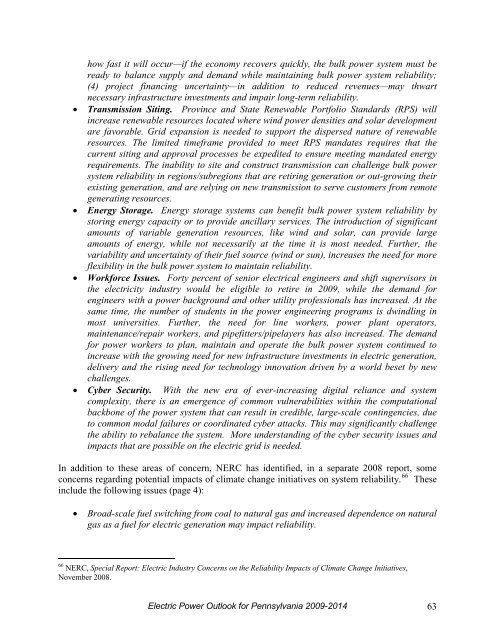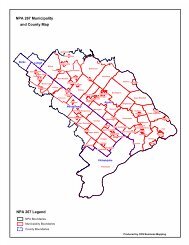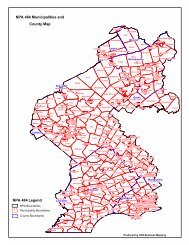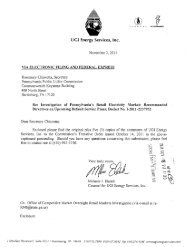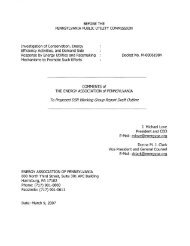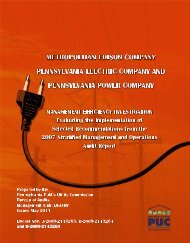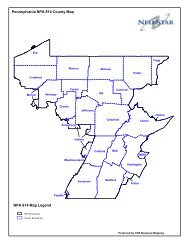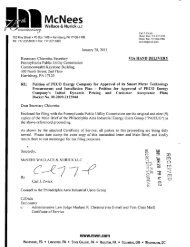2010 Report - Pennsylvania Public Utility Commission
2010 Report - Pennsylvania Public Utility Commission
2010 Report - Pennsylvania Public Utility Commission
You also want an ePaper? Increase the reach of your titles
YUMPU automatically turns print PDFs into web optimized ePapers that Google loves.
how fast it will occur—if the economy recovers quickly, the bulk power system must beready to balance supply and demand while maintaining bulk power system reliability;(4) project financing uncertainty—in addition to reduced revenues—may thwartnecessary infrastructure investments and impair long-term reliability.• Transmission Siting. Province and State Renewable Portfolio Standards (RPS) willincrease renewable resources located where wind power densities and solar developmentare favorable. Grid expansion is needed to support the dispersed nature of renewableresources. The limited timeframe provided to meet RPS mandates requires that thecurrent siting and approval processes be expedited to ensure meeting mandated energyrequirements. The inability to site and construct transmission can challenge bulk powersystem reliability in regions/subregions that are retiring generation or out-growing theirexisting generation, and are relying on new transmission to serve customers from remotegenerating resources.• Energy Storage. Energy storage systems can benefit bulk power system reliability bystoring energy capacity or to provide ancillary services. The introduction of significantamounts of variable generation resources, like wind and solar, can provide largeamounts of energy, while not necessarily at the time it is most needed. Further, thevariability and uncertainty of their fuel source (wind or sun), increases the need for moreflexibility in the bulk power system to maintain reliability.• Workforce Issues. Forty percent of senior electrical engineers and shift supervisors inthe electricity industry would be eligible to retire in 2009, while the demand forengineers with a power background and other utility professionals has increased. At thesame time, the number of students in the power engineering programs is dwindling inmost universities. Further, the need for line workers, power plant operators,maintenance/repair workers, and pipefitters/pipelayers has also increased. The demandfor power workers to plan, maintain and operate the bulk power system continued toincrease with the growing need for new infrastructure investments in electric generation,delivery and the rising need for technology innovation driven by a world beset by newchallenges.• Cyber Security. With the new era of ever-increasing digital reliance and systemcomplexity, there is an emergence of common vulnerabilities within the computationalbackbone of the power system that can result in credible, large-scale contingencies, dueto common modal failures or coordinated cyber attacks. This may significantly challengethe ability to rebalance the system. More understanding of the cyber security issues andimpacts that are possible on the electric grid is needed.In addition to these areas of concern, NERC has identified, in a separate 2008 report, someconcerns regarding potential impacts of climate change initiatives on system reliability. 66 Theseinclude the following issues (page 4):• Broad-scale fuel switching from coal to natural gas and increased dependence on naturalgas as a fuel for electric generation may impact reliability.66 NERC, Special <strong>Report</strong>: Electric Industry Concerns on the Reliability Impacts of Climate Change Initiatives,November 2008.Electric Power Outlook for <strong>Pennsylvania</strong> 2009-2014 63


